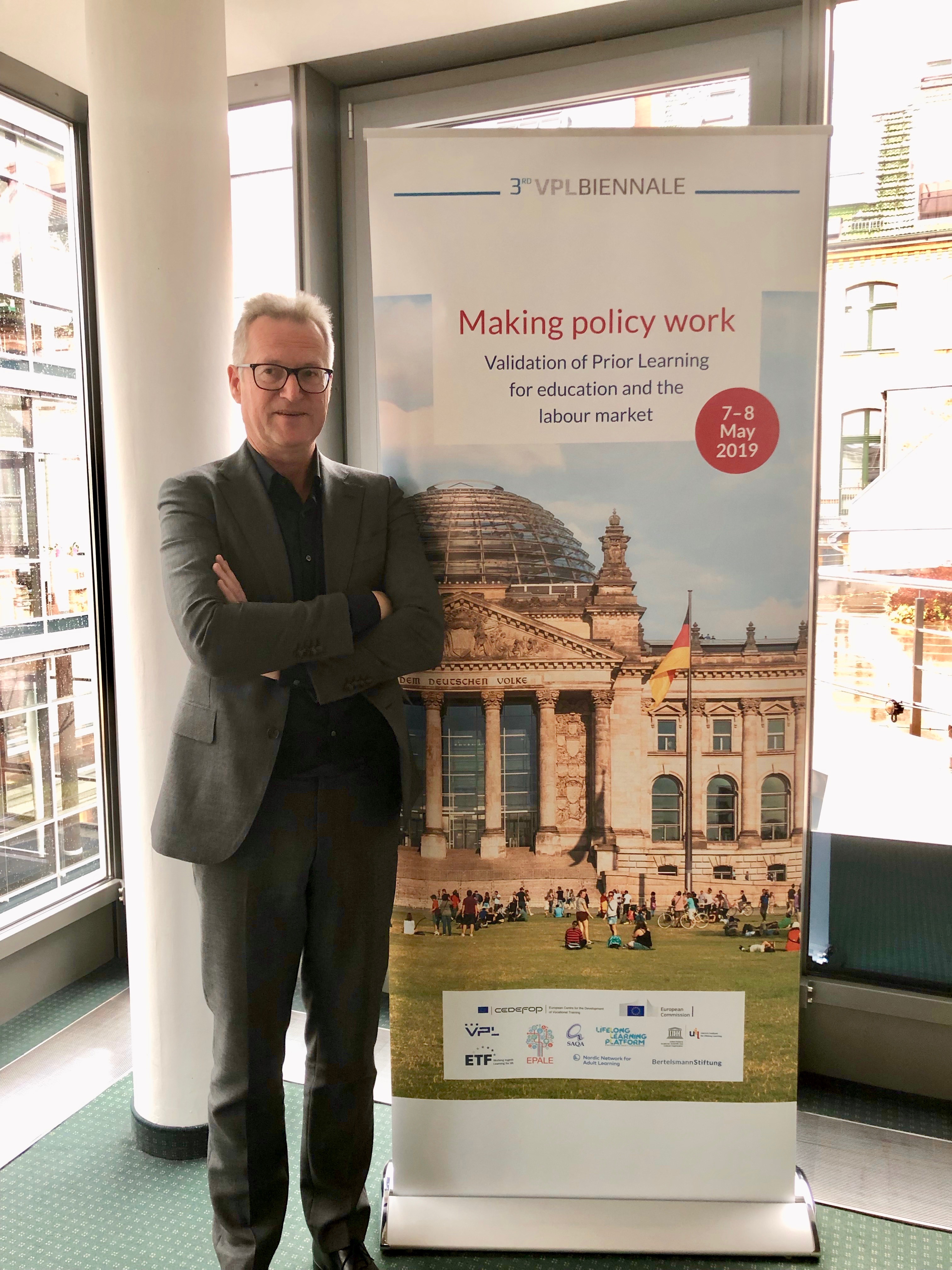Following Rotterdam (2014) and Aarhus (2017), the 3rd Biennale on the Validation of Prior Learning (VPL) took place in Berlin, Germany, on May 7 and 8, 2019.
The 3rd VPL Biennale aimed at strengthening the platform for policy makers, practitioners, users, researchers and other stakeholders involved in the development and implementation of Validation of Prior Learning.
The 3rd VPL Biennale’s theme was “Making policy work – Validation of Prior Learning for education and the labour market”. It’s about sharing knowledge, ideas and visions of VPL, learning from each other’s experiences and creating viable solutions in the ‘VPL world’.
The 3rdVPL biennale has a focus on six VPL policy areas:
- Organisational arrangements
- Financing
- Procedures and instruments
- Support structures
- Post-validation pathways
- Legal foundations
The Biennale Committee 2019:
- Heidi Bolton, SAQA, South Africa.
- Antra Carlsen, NVL, Nordic Network for Adult Learning, Denmark.
- Ruud Duvekot, Foundation EC-VPL, the Netherlands.
- Bodil Husted, NVR, VIA University College, Denmark.
- Anni Karttunen, Globedu, Finland.
- Martin Noack, Bertelsmann Stiftung, Germany.
- Raúl Valdes Cotera, UNESCO Institute for Lifelong Learning, Germany.
- Lieve Van den Brande, European Commission, DG Employment, Social affairs and Inclusion, Belgium.
- Ernesto Villalba-Garcia, CEDEFOP, Greece.
Questions explored were:
- How can bridges be built among stakeholders from the worlds of business, volunteering, and education in order for VPL results to have value?
- What forms of financing have to be in place in order to make VPL accessible to all learners?
- What kinds of procedures and instruments provide valid results and can cater for a large number of candidates?
- What support structures have to be available in order to reach disadvantaged learners?
- What follow-up measures are required for validation to facilitate further learning and enhanced career paths?
- What issues need to be addressed by laws and regulations for VPL to be effective?

